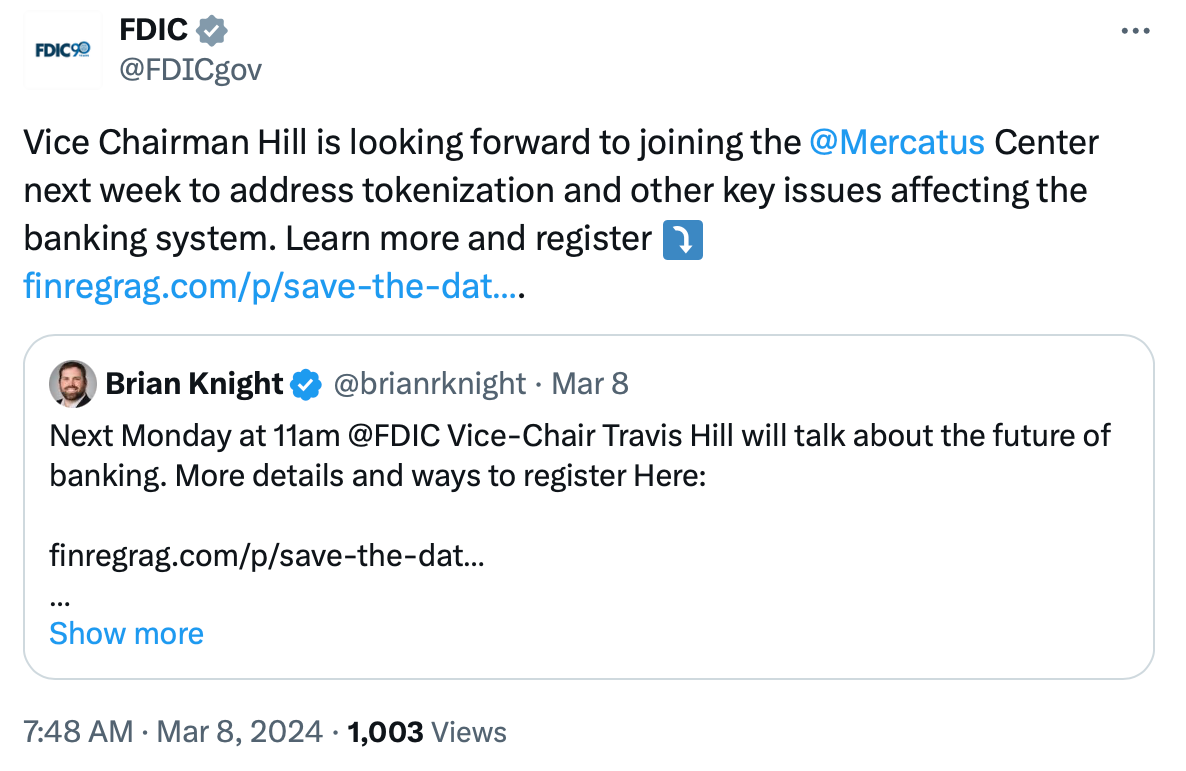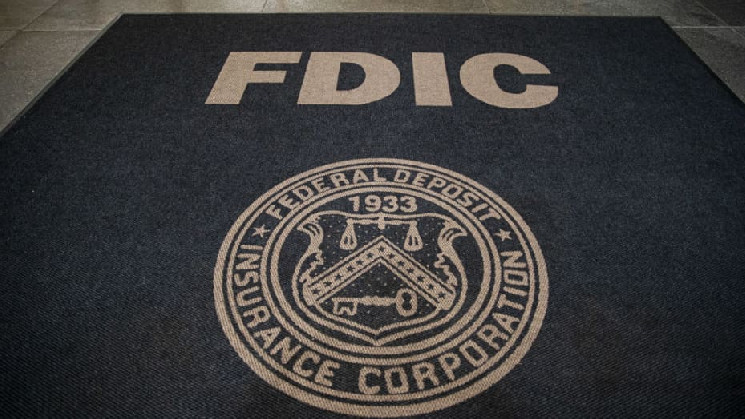Travis Hill, the vice chair of the U.S. Federal Deposit Insurance Corporation (FDIC), conveyed concerns at a Mercatus Center event on March 11, warning that both bank customers and the U.S. economy could suffer from inadequate regulation of blockchain technology. Hill acknowledged that the United States is already facing risks in this regard, attributing a portion of the responsibility to the FDIC.
You might also like
SEC Seeks Court Intervention in Binance.US Information Dispute
SEC Continues to Delay BlackRock, Fidelity Spot Ethereum ETF Proposals
Hill highlighted the potential benefits of tokenizing bank deposits and other real-world assets (RWAs), emphasising the facilitation of financial transactions with real-time settlement and the programmability of payments. This could enable intraday repo exchanges and enhance settlement times for various transactions, ultimately benefiting consumers by offering programmable payments as alternatives to escrow.
However, Hill also pointed out several unresolved issues surrounding tokenization, including concerns about unified ledgers, blockchain interoperability, and asset ownership rights during blockchain transactions. He stressed the importance of establishing global standards in this rapidly evolving landscape, warning that the United States risks losing influence if it does not actively engage in shaping these standards.
“Global standards are being established, directly or indirectly, and with many non-U.S. jurisdictions actively engaged in this area, the United States risks ceding influence at this critical stage.”
While programmability could mitigate settlement risks and streamline Know Your Customer processes, Hill cautioned that it could also exacerbate bank runs by allowing consumers to swiftly move their assets. He emphasised the necessity of implementing mechanisms to prevent such scenarios.

Hill criticised the current regulatory approach, noting that previous attempts to establish consistent policies have been unsuccessful. He advocated for clearer guidance from regulators and called for consistency in treating deposits of any form equally. He particularly criticised the Securities and Exchange Commission’s (SEC’s) Staff Accounting Bulletin 121 (SAB 121), which treats crypto assets differently from other types of assets, potentially encompassing tokenized RWAs under its broad definition of crypto assets.
 coinculture.com
coinculture.com
